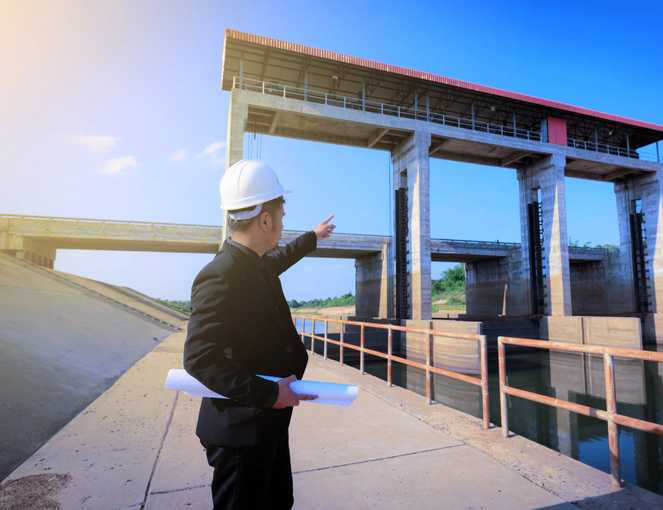Progressive Design-Build Takes Another Step Forward in California
Progressive Design-Build Takes Another Step Forward in California

Legislators have gradually expanded local agencies’ authority to procure construction projects over the last couple of decades by using various alternatives to the design-bid-build delivery method, which requires that contracts are awarded to the lowest responsible bidder. Recently, California took another step forward in this regard.
On September 2, 2022, Governor Newsom signed into law SB 991, which expands the use of progressive design-build (PDB) project delivery in the public sector for certain water projects. This process has proven to be well-regarded by the construction industry for its balanced risk allocation, while simultaneously providing municipalities more flexibility in addressing challenges such as droughts.
Existing law, until January 1, 2025, authorizes local agencies to use the traditional design-build procurement process for specified public works with prescribed cost thresholds. This new legislation, until January 1, 2029, authorizes local agencies to use the PDB process for up to 15 public works projects in excess of $5 million for each project, similar to the PDB process authorized for use by the Department of General Services.
The term “local agency” is defined in the bill as any city, county, city and county, or special district authorized by law to provide for the production, storage, supply, treatment or distribution of any water from any source. The bill requires a local agency that uses the PDB process to submit, no later than January 1, 2028, to the appropriate policy and fiscal committees of the Legislature, a report on the use of the PDB process containing specified information, including a description of the projects awarded using the PDB process.
PDB emerged as a project delivery model in Canada in 2020 and quickly gained traction in the U.S. The PDB process has grown in popularity in recent years as a valuable form of collaborative project development that can help the project stakeholders minimize some of the customary risks inherent in traditional design-build, specifically by helping to avoid unforeseen conditions and design changes through a more achievable schedule and cost structure.
Essentially, the PDB model generally includes two phases. In the first phase, the awarding authority uses a “best value” process primarily focused on qualifications and experience to select a design-build entity. Notably, the fee to be paid to the design-build entity for both phases of the project is agreed upon at selection; however, the overall project cost and schedule are not established at the time of the selection. This mitigates the issue of a design-build entity bidding on a project with incomplete plans and specifications.
In phase one, the design-build entity completes preliminary plans and preconstruction services necessary to provide a cost estimate and final design proposal. During this phase, the design-build entity collaborates with the awarding authority and with its own consultants to develop the project’s overall design and clearly define the programming and priorities. Generally speaking, most owners, consultants, and contractors would choose a collaborative work environment as opposed to the adversarial approach inherent in many traditional forms of contracting.
The project then progresses to the second phase where the awarding authority and design-build entity agree to a final design, cost, and schedule, creating full transparency with an open-book approach. At an agreed upon time, typically when the design is between 50 and 75 percent complete, the design-builder will present the awarding authority with a commercial proposal to deliver the project in phase two, which is for the final design, construction, and commissioning.
The design-build entity would present a specific schedule along with a guaranteed maximum price (not to exceed) cost basis. If the parties cannot agree on a fair value cost, then there is a contractual “off ramp” that the awarding authority can exercise in its discretion if it elects not to proceed. Even if the “off ramp” is used, the awarding authority still benefits from having the first phase work complete since it may then solicit competitive proposals to complete the project from other entities. This differs from traditional design-build project where the awarding authority contracts with a single entity to design and construction a project at a set price before design work begins in earnest and without a similar “off ramp.”
Thus far, the PDB delivery method has been well-received in the construction industry since it appropriately and reasonably allocates the risk for each party involved in a project, which has been a frequent criticism of the traditional design-build approach. It also allows an awarding authority high level of input and control while allowing the design-builder the best possible environment to foster the innovation much needed for complex water projects. California is in another cycle of drought, and SB 991 could provide an opportunity to assist local agencies in addressing the state’s critical need for additional water.
MEDIA CONTACT
Patrick Ross, Senior Manager of Marketing & Communications
EmailP: 619.906.5740
EVENTS CONTACT
Suzie Jayyusi, Events Planner
EmailP: 619.525.3818

